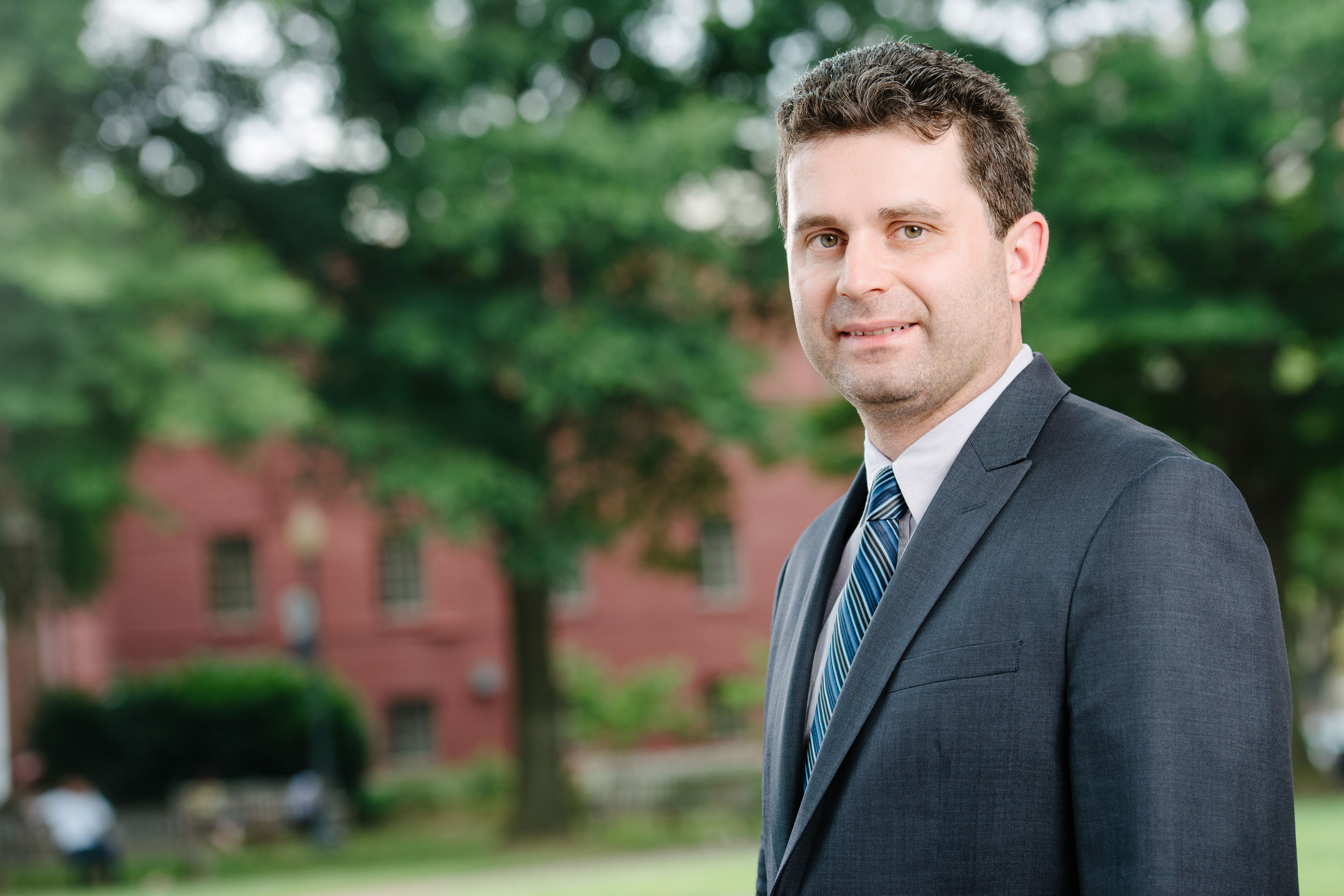Professor Dmitry Karshtedt, an expert in patent law, joined the law school this past fall from the Center for Law and the Biosciences at Stanford Law School. He answered a few questions about his background and research and offered advice for law students.
You earned a PhD in chemistry and had a career as a scientist. Why did you decide to go back to school and study law?
I've always been interested in law, but when I was in college, I assumed that law and science was an either-or proposition. So I chose chemistry, but when I started working for a semiconductor materials startup I realized that I can work at the intersection of law and science in the patent field. I decided to go to law school and never looked back, but my technical background has been critical in every job I've had in law so far.
What are you focusing on in your research here at GW? Has your focus changed at all since you started here?
My two areas of focus are the intersections of patent law and science and patent law and tort law. The latter part of my research agenda definitely expanded since I started at GW and began teaching torts. I developed a deeper understanding of tort law, and that helped me see connections between patents and torts that I didn't see before. A paper that I've been working on for the last few months reflects this increased tort law focus.
You are teaching Torts and Patent Law. How have you found teaching at GW? What are some differences between teaching the law versus teaching science?
In science, there is much more straight-up lecturing, but I think I prefer the more interactive style we have in law teaching. The Socratic method has the benefit of giving the students immediate feedback on their readings of the cases and elicits insights from which both students and professors can benefit. I think science teachers might find that they enjoy using this method, which they can always test out on a limited, experimental basis.
"Students should consider exploring paths that you didn't think about before starting law school. The great thing about a career in law is that you rarely foreclose future opportunities by your early choices out of law school."
What's a good piece of advice that you give to law students?
Consider exploring paths that you didn't think about before starting law school. The great thing about a career in law is that you rarely foreclose future opportunities by your early choices out of law school. Many lawyers find that, if they choose to, they can readily switch from in-house or government jobs to law firm or other jobs, and vice versa. Consider my own path—I worked for a firm, clerked, and then went into academia. All of these experiences have had tremendous value. Other fields tend to be much more rigid. In chemistry, for example, a postdoc is a step you pretty much have to take after the PhD if you'd like to be a professor. I appreciate the fluidity that is possible in a legal career, and that is an advantage of this field that is not to be discounted.


